#his name is Ryouma
Explore tagged Tumblr posts
Photo


References with Maya and the emos that surround her
#original characters#oc#wednesday#final fantasy 7#Maya#Lorelei#guest OC#his name is Ryouma#set:until then#set:stars with her#interaction#crossover#character skin
2 notes
·
View notes
Text




Hello I'm back with character challenges!
Saito's referring to this live drama, and the next year Okita did appear there too.
#hakuouki#saito hajime#okita souji#nagakura shinpachi#harada sanosuke#sannan keisuke#hijikata toshizo#kazama chikage#nakaoka shintaro#sakamoto ryouma#shiranui kyo#toudou heisuke#I'm pretty happy with how these turned out#sakamoto is giving his letter to chizuru there#I forgot to add the name on the envelope#shiranui was hard#have you noticed that his “bangs” are different length in anime and in games?#in anime they barely reach his eyebrows#but in games they easily go past his eyes..#when I got heisuke and “go” I immediately thought of running#but I have already done that#I dunno how clear it is that his back is slashed open#character challenge#chibi#fan art
63 notes
·
View notes
Note
WAIT IT MEANS HORSE????
*insert joke about Kokichi being "rode like a horse"*
Wait so what do the other characters in his name translate to????
- 🧸 i wanna draw Kokichi Horse. or him in cowboy gear. thats funny /gen
Confession 83
#his full name translates to Small Luck (Kokichi) King Horse (Ouma) iirc....#theres a joke here#about ryoma and kokichi being as hung as horses#I mean#they ARE the shortest boys in the game#anon confessions#anonymous confessions#confession blogs#confessions#danganronpa#anon confession#dangan#confess blog#confession#ryouma#ryouma hoshi#hoshi#kokichi#kokichi ouma#ryoma hoshi#ryoma#kokichi oma#oma#ouma
3 notes
·
View notes
Text
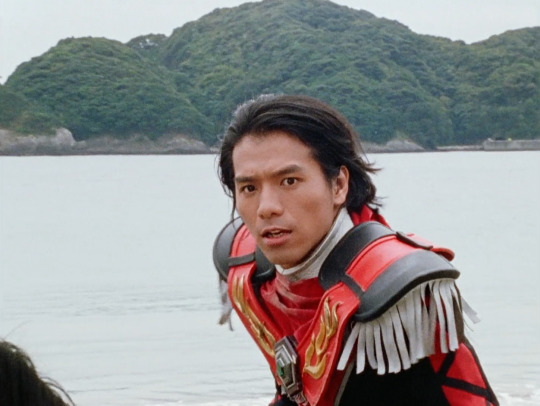
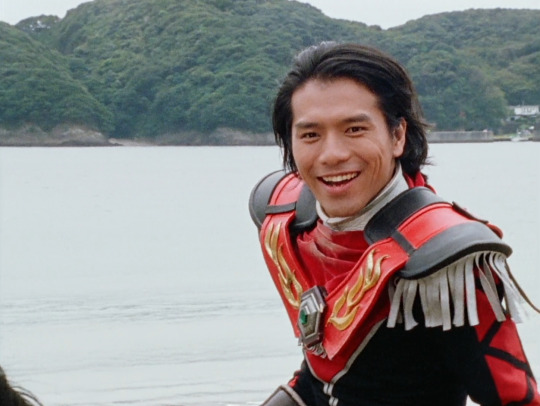
watched the vs ginga movie. hyuuga was there. 10/10
#live kyuu kyuu reporting#look! its him! its my boy! its hyuuga!!!!#hyuuga aside it was actually a very good vs special#matoi trying to throw his big brother weight around with ryouma and it just NOT working AT ALL love it tyvm#MATOI GIVING RYOUMA HIS JACKET AND COYLY WALKING AWAY LOVE IT TYVM#other highlights include: gouki#and!!! they finally gave hyuuga a new horsie since Red Spark got passed on to ryouma and that makes my heart very happy#cowards for not putting a stupid head piece on the horse tho. also tell me the horses name or i swear to god i will name him myself
5 notes
·
View notes
Text
i love good-for-nothing ryouma 🥰
#oryo get his ass girl#i love the gesture he does he says 'the dice are calling my name'#he's giving deadbeat#lad:ishin#lad:ishin sakamoto ryouma#sakamoto ryouma#ryouma sakamoto#this is my favorite non-harada scene in the entire game
9 notes
·
View notes
Text
NAMES OF SIBLINGS: CLASS E
NOTE: doesn’t include Kurahashi and Mimura’s retconned (mentioned in one extra material, then not) brother(s).
Please credit me if you use my name ideas! I'd love to see what content you do with it :)
Hope you like it! I am open to feedback, questions if any, (about the themes™ or something else) and opinions. I'd love to talk more about my work.
Click on "ref." to see what the name is, well, referencing! it's a lot of Wikipedia nods and research from me.
ISOGAI (磯貝) Yuuma (悠馬)
Mother: Yukie (幸栄 "happiness, prosperous")
Younger brother, 6: Yutaka (裕 “affluence”)
Sister, 6 (twins): Yuko (裕子, latter meaning “abundance”)
OKAJIMA (岡島) Taiga (大河)
Older brother, 16: Takumi (匠海 “sea, craftsman” as Taiga means “river”)
OKANO (岡野) Hinata (ひなた)
Older brother, 17: Sora (そら “blue sky”, as Hinata means "sunny place")
Younger brother, 10: Haruki (はるき “spring, radiance” to keep up the theme)
KATAOKA (片岡) Megu (メグ)
Father: Ken (健 “strength” versatility in both Japanese and English)
Mother: Valérie (ヴァレリ “valuable, strong”) Durack (デュラック ref.)
Older brother, 24ish: Jo (譲 “transfer” as Megu is also a JPN/ENG name)
KANZAKI (神崎) Yukiko (有希子)
Older brother, 19ish: Nobushige “Nobu” (陳重, “Father of japanese civil law” ref.)
(or Nobuyoshi 信義 “faith, justice” ref.)
KIMURA (木村) Masayoshi (正義)
Younger brother, 11: Brave (勇気) (canon name)
SUGAYA (菅谷) “Sosuke” (創介)
Father, 65: Isamu (勇 ref.)
Mother, 60: Setsuko (節子 ref.)
Sister, 30: Fuku (譜矩 “music sheet”, “carpenters square” ref.)
Chosen name: Aya (彩 “coloring”)
SUGINO (杉野) Tomohito (友人)
Younger brother, 10: Ichirou (朗 ref. who is mentioned by Tomohito in this)
TAKEBAYASHI (竹林) Kotarou (孝太郎)
Oldest brother, 25: Kohei (孝平, “filial piety”, like Kotarou, “flat”)
Older brother, 22: Koichi (耕, “cultivate” same “Ko” syllable as his brothers)
CHIBA (千葉) Ryuunosuke (龍之介) name credits from @fumiko-matsubara post!
Older sister, 18: Rena (れな “beautiful”)
Younger sister, 12: Kohaku (琥珀 “amber, jewelled”)
Youngest sister, 7: Yuko (優子 “tender, child”)
TERASAKA (寺坂) Ryouma (竜馬)
Younger sister, 5ish: Ryoko (竜子 “dragon” (like her brother) “child”)
NAKAMURA (中村) Rio (莉桜)
Older brother, 20: Ren (蓮 “lotus” as Rio means "jasmine" and "cherry blossom")
HARA (原) Sumire (寿美鈴)
Father: Suzuo (鈴雄 “bell” (same kanji as Sumire), “male”)
Mother, from Shimane: Emiko (恵美子 “blessing, beauty (same kanji as Sumire), child”)
Younger brother, 9ish: Toshiki (寿樹 “longevity” (same kanji as Sumire), “trees”)
(or Susumu (進 “advance”))
Youngest brother, 6ish: Kazuma (寿馬 “longevity” (same kanji as Sumire) “horse”)
FUWA (不破) Yuzuki (優月) (from @xx0social-anxiety0xx)
Older brother: Minato (湊, ref.)
MAEHARA (前原) Hiroto (陽斗) (names from @maeiso-trash post, i just picked the kanji)
Oldest sister, 19: Mizuki (美月 “moon, beautiful” as Hiroto means sun)
Older sister, 17: Kiyoko (喜洋子 “rejoice, ocean child” as her siblings mean sun/moon)
MIMURA (三村) Kouki (航輝)
Mother: Wakana/ (和可女 “harmony, capable, woman”)
or Tomoe (知永 “eternity, wisdom”)
MIYAKE (三宅 “three house”, from Okayama prefecture)
MURAMATSU (村松) Takuya (拓哉) ref.
Younger brother, 12: Sho (翔 ref., keeping the “JOHNNY oshi” theme)
YADA (矢田) Touka (桃花)
Younger brother, 9: Kentaro (健太朗 “healthy/strength, plump, cheerful”)
YOSHIDA (吉田) Taisei (大成) ref.
Mother: Sokhna (ソクナ “woman, wife”) N’Diaye (ンジャイ)
Father: Shigeo (重夫 “ ref.)
Older Sister, 20: Tomoko (とも子 “friend, child” ref.)
RITSU (律)
Older sister/prototype: Første Artillerimodell (F.A.Mo)
#assassination classroom#ansatsu kyoushitsu#assassination classroom headcanons#yuuma isogai#hinata okano#megu kataoka#yukiko kanzaki#sugaya sousuke#sugino tomohito#chiba ryuunosuke#terasaka ryoma#rio nakamura#hiroto maehara#touka yada#taisei yoshida#hara sumire#takuya muramatsu#fuwa yuzuki#kotarou takebayashi#okajima taiga#masayoshi kimura#assassination classroom families#ritsu assassination classroom
36 notes
·
View notes
Text

his name is Ryouma 😍
9 notes
·
View notes
Text

First time making an oni OC, his name is Ryouma!
13 notes
·
View notes
Text
Death as a Salvation in Zestiria
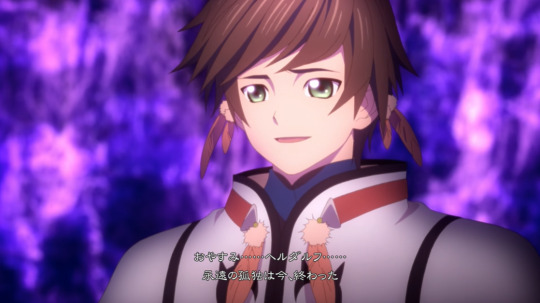
Good night, Heldalf. Your life of eternal solitude is at last over.
Zestiria, despite its medieval fantasy and Arthurian legend outward appearance, actually doesn’t hold back in its Japanese inspirations (among a lot of things, the devs have at least admitted that Sorey and Mikleo are inspired by the Japanese historical figure, Sakamoto Ryouma, and that seraphim are based on kami.)
Often overlooked, though, are its very obvious Buddhist inspirations, especially Japanese Buddhism, despite it supposedly being as apparent as the other inspirations. Perhaps viewing it through Buddhist lens would help some to understand arguably the most controversial message in Zestiria, that is, “death can be salvation.”
I will start off with a disclaimer: Even if I just say Japanese Buddhism, there are actually many schools for Buddhism even in Japan alone, so I will try to just keep things to the general stuff that is applicable in majority of the schools, or if I have to point out something specific, then I will specify which school it is from.
One thing for sure though, in whatever form it is, Japanese Buddhism has had a major influence on Japanese society and culture and remains an influential aspect to this day.
There’s a common saying that a Japanese is “born Shinto, but dies Buddhist.” In Shinto, an animistic religion, everything has a kami inside it, living or non-living. This kami that everyone has will be released at the time at death and move on. Those who pass away are highly respected, and it’s not appropriate to mourn deceased family members intensely. Death is just a reminder to push towards living more fully, meaning that it focuses more on life and is less associated with death. Buddhism, on the other hand, came to be known as the religion of funerals in Japan, and as such, it has also come to be associated with death.
This duality of a Japanese spiritual life can also be seen in Zestiria themes and messages: On one hand, you have the game celebrating how beautiful, how sacred this world, this life is. On the other hand, it also says that death can also be a release. The same duality is reflected in Sorey, the mere human with dreams to explore all the ruins, and Sorey, the Shepherd with his duty. How can he realize both of these at the same time?
By the way, Zestiria is not short on its Japanese Buddhist inspirations: you can see sokushinbutsu (即身仏) in the Trial Shrines, the Five Lords are called Godaishin (五大神), the Crucibles are named after Naraka, heck, even the original Japanese term for Shepherd, Doushi (��師), is a specific Japanese Buddhist term. Which we will get there, I promise.
But first up, I want to talk about the elements in Zestiria, our first relevant Buddhist inspiration here.

The five-element system in Zestiria is actually modeled after the same five-element system in Japanese Buddhism, known as Godai (五大), meaning the Five Great [Elements], that even the Five Lords are called Godaishin (五大神) meaning Five Great Lords in Japanese. Godai, in turn, is related to Mahābhūta, which is basically the same concept in Indian Buddhism.
This system explains that all physical aspects of existence originate from a common source and can be classified in one of the Godai manifestations of physical matter. Chi (地), or the Earth, symbolizes solid matter. Sui (水), the Water, symbolizes liquids. Ka (火), the Fire, is the symbol of combustion, or the elements in an energy-releasing state. Fuu (風), the Wind, symbolizes gases. Kuu (空), the Void, is representative of the formless subatomic energy that is the basis for the structure of all things. This Godai symbolism is also used to describe the emotional nature of human beings.
(By the way, Light and Darkness are also included in Void in this system. It is everything yet nothing at the same time.)
You can see these elements in gorintou (五輪塔), stupa used for memorial purposes.

Sometimes you can even see the Lotus Sūtra (妙法蓮華経) carved on it too.

The shapes these elements are represented by symbolize the order in which someone progresses in their spiritual journey:
The square of Earth is the basis, the will to attain perfection.
The circle of Water is the attainment of equanimity.
The triangle of Fire represents the energy created in pursuit of the truth.
The crescent of Wind represents the development of intuition and awareness.
The lotus of Void represents perfection.
However, just for one element, there are more meanings than what have been said so far, at least in Buddhism. That is, Fire, the element of the Silver Flame, as the power of the Shepherd.

For all the Shinto inspirations, it’s funny how they went with Fire instead of Water, the main element usually used for purification in Shinto (it’s not that it doesn’t use Fire either, just that the main purification ritual, misogi, uses water).
So first, I want to talk about how Shinto sees Fire. Fire seems to be viewed as the most powerful element, able to both bring something of the sacred into this world and to open the gates to the other. Izanami-no-Mikoto, the mother-kami who created the Japanese Archipelago and most of the Japanese kami, died giving birth to the Fire kami, an episode that is relevant from two perspectives: first, Izanami’s death represents in itself a myth of origin, as death did not, could not exist until it happened for the first time; second, it is fire that facilitates the transition from one level of existence to another. Izanami died, but that does not mean that she disappeared; on the contrary, she continues to exist in the world of shadows, changing her role as creator for that of destroyer, of death-bringer.
Fire is still used in Japanese rituals to establish connection between the known world, inhabited by living humans, and the world of kami and things passed. In the beginning of every year, shrines all over Japan make huge bonfires named dondoyaki (どんど焼き), where used New Year decorations and amulets are burned. At Buddhist temples, similar fires are lit for the burning of prayer tablets and amulets that had been used during the previous year. In both cases, the objects to be cremated are not viewed as no longer useful, but rather as something that has fulfilled its role on this existential level and must now ritually pass into the other, Fire being the potent element which opens the pathway.
A lot of connections to death here. But more than anything, there is a bigger symbolism for Fire in Buddhism, that is, in Ādittapariyāya Sutta, more popularly known as the Fire Sermon in English.
Sabbaṃ bhikkhave ādittaṃ
Bhikkhus, all is burning.
“All” (sabba) here refers to six internal senses (eye, ear, nose, tongue, body and mind), six external senses (visible forms, sound, smells, tastes, touches and mental objects), consciousness (viññāṇa) contingent on these senses, the contact (samphassa) of a specific sense organ (such as the ear), its sense object (sound) and sense-specific consciousness, and finally, what is subsequently felt (vedayita): pleasure (sukha), pain (dukkha), or neither (adukkhamasukhaṃ).
And by “burning” (āditta) is meant the fire of greed (rāgagginā), the fire of aversion (dosagginā), the fire of delusion (mohagginā), as well as the manifestations of suffering: birth, aging and death, sorrows, lamentations, pains, distresses and despairs.
Nibbindaṃ virajjati virāgā vimuccati, vimuttasmiṃ vimuttamiti ñāṇaṃ hoti, khīṇā jāti, vusitaṃ brahmacariyaṃ, kataṃ karaṇīyaṃ nāparaṃ itthattāyāti pajānātī ti.
Disenchanted, he becomes dispassionate. Through dispassion, he is fully released. With full release, there is the knowledge, “Fully released.” He discerns that “Birth is ended, the holy life fulfilled, the task done. There is nothing further for this world.”
This will be relevant later on, but we’ll save this for now. Just remember the three fires and suffering, “burning.”
For now, I want you to focus on the word “Shepherd”, or “Doushi” (“導師”) in Japanese. Surprisingly to me, no one has really overthought this word before, despite it being the main focus of the narrative itself. Sorey, the protagonist, is the Shepherd. And sure, I���ve said that “Shepherd” is a fine enough translation for the term, but fine enough doesn’t mean it’s the best it could’ve been, though this is a tricky one to translate because no matter what they could’ve gone with, it would’ve still been lost in translation.
See, “導師” on surface level means a guru/master (師) who guides (導), that meaning is still retained in “Shepherd”, thankfully enough. However, in Japanese Buddhism, this term has a very specific meaning, and no, it’s not just “monk.”
It’s specifically a monk who facilitates funerals.
Originally, Doushi is just a monk who gives Buddhist sermons, who guides people to the path of Buddha, however, it has specifically come to mean a monk who gives indou (引導), which, to put simply, is a requiem of the dead, meant to lead/guide the dead to Nirvana, enlightenment; by having the Doushi recite the Dharma (“cosmic law and order”, Buddha’s teaching) to them. Aside from that, they’re also in charge of makuragyou (枕経), literally pillow sutra, which is the sutra recitation at the bedside of a deceased person.

So with this, I want to remind you that Sorey has a title, Vigil-Keeper (看取りし人), that basically means someone who attends to death. Someone who watches over someone else on their deathbed. And I’ve talked about that too here.
Back to Fire, the element, there’s an interesting expression in Japanese that basically is a euphemism for dying, which is “命の火が消える”, literally meaning “the fire of life is extinguished.” In the novel, among the many deaths, this expression is only used twice to describe death.
The first time, it’s Mikleo’s death as a human.
だが、生まれたばかりで柔らかかった皮膚はいま、熱と炎でただれ、命の火を消えそうとしている。
But the newborn’s tender skin was now inflamed with heat and flames, and his fire of life was about to be extinguished.
The second time, it’s Heldalf’s, as killed [saved] by Sorey.
And we know Mikleo immediately got reborn as a seraph afterwards, a being described as the purest, the noblest being ever. Seraphim are also beings that don't experience external change, unlike humans (人間は天族と違い、時間・経験と共にその在り方を変えていく), meanwhile life is full of changes according to Buddhism.
「おやすみ、ヘルダルフ……永遠の孤独はいま、終わった」
「………気に入らん……な……最後まで抗おうと……いう……のか……」
ヘルダルフの口がさらに何かを紡ごうとしていたが、もはや言葉にならず、彼は命の火を消した。
“Good night, Heldalf. Your life of eternal solitude is at last over.”
“You dare fight back even until... until the very end. I can't... I can't stand it.”
Heldalf’s mouth was trying to spin something more, but words could no longer come out, and his fire of life extinguished.
I want to note here that “命の火を消した” is more “extinguished his fire of life” but I didn’t want to make it sound like Heldalf, himself, did it, since Sorey was the one who did it. Wording, deliberate, Zestiria is all about reading between the lines after all.
But why? You might ask.
Remember how I said the Buddhist Doushi’s job is to lead the dead to the Nirvana? Nirvana (涅槃), the Buddhist salvation, as a word often gets translated as “enlightenment”, as “liberation” from suffering, but at the base level, it has another meaning. Or two, even.
One, “extinguishing of a flame.” Two, “death.”
Nirvana is the extinction of the “three fires”, namely of greed (raga), aversion or hate (dvesha) and of delusion or ignorance (moha or avidyā), the same three fires as before. This signifies the permanent cessation of saṃsāra (meaning “wandering” but basically is the “karmic cyclicality of all life, matter, existence”) and rebirth. Attainment of salvation or Nirvana is main goal of Buddhism.
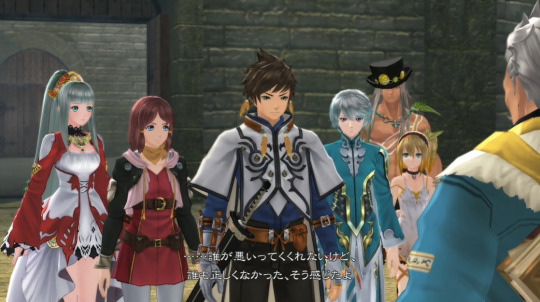

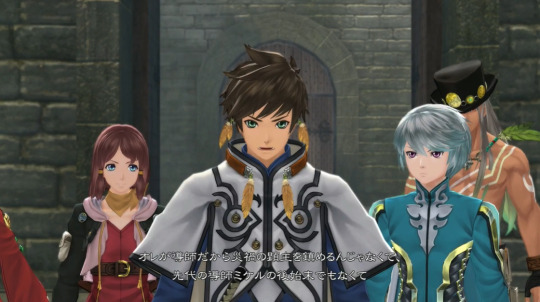
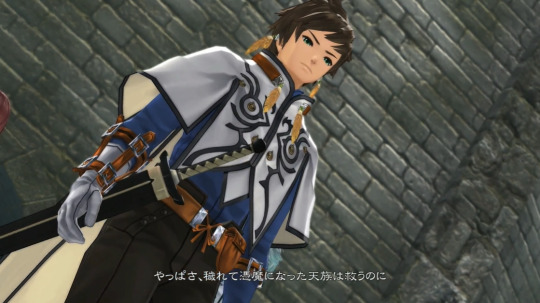
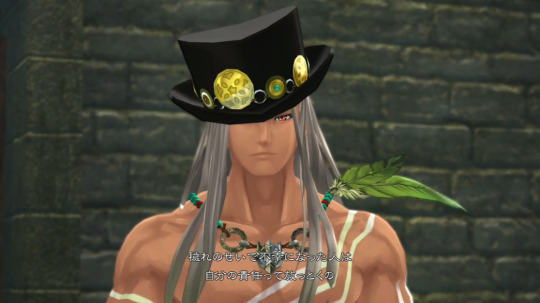
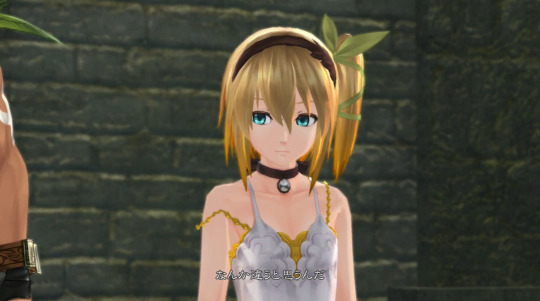


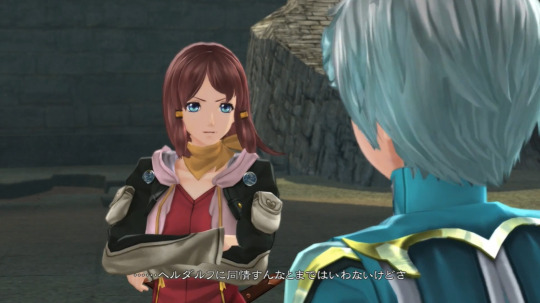

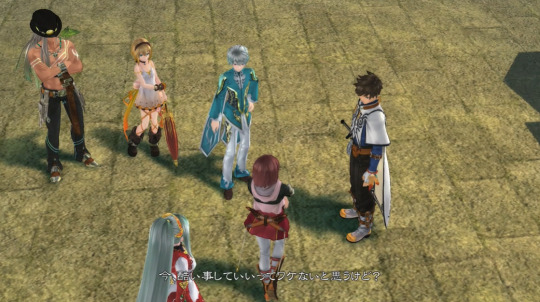


SOREY: No one involved was fully in the wrong, but no one was really right either. That’s how it felt to me.
SOREY: My answer... is I want to save Heldalf. SOREY: The Shepherd’s job doesn't just boil down to “quell the Lord of Calamity,” or even “clean up the previous Shepherd’s mistakes.” SOREY: When malevolence consumes seraphim and turns them into hellions, we save them... SOREY: ...Yet when it brings misfortune and grief to humans, we say they only have themselves to blame. SOREY: It doesn’t seem fair.
MIKLEO: There are humans out there just like Heldalf. MIKLEO: He just happened to play one part in a cascade of terrible events. ROSE: I’m not gonna say you shouldn’t sympathize with him. ROSE: But I will say it would strike me as bizarre to completely let him off the hook for the horrors he brought to such a peaceful village... ROSE: And what he’s trying to do now is still messed up... Right? SOREY: Absolutely. It’s wrong, period, and I will stop it.
SOREY: If I won’t save humans like Heldalf who’ve had hellionhood thrust upon them, I’ll never see humans and seraphim live in peace!
In Shingon Buddhism, Fudou Myouou (不動明王), of the Vidyārāja, is assigned as the Doushi to the first seven days of service when mourning, as he tops the list of Thirteen Buddhas. Fudou Myouou is the manifestation of Dainichi Nyorai (大日如来) in disguise, always close at hand to protect us. He resides within the hearts of those who believe in him, protecting them and providing them with blessings.
If he were an animal, he would be a dragon; if he were an object, a double-edged sword; and if he were a color, gold or blue-black.
Fudou Myouou holds a sword in his right hand, the sword with the dragon king Kurikara (倶利伽羅), which represents righteous Buddhist wisdom to cut off evil thoughts and doubts. The rope in his left hand is meant to bind bad minds and awaken good minds. The flame on the back is called Karura-En (迦楼羅炎); Karura or Garuda is the name of a legendary bird that eats poisonous animals. The flame in the form of this bird represents the consuming of poisonous things. The rock beneath his feet is called Banjaku (盤石), a large, hard rock. It represents a stable mind without hesitation. The sutra says “sitting on a vajra stone” (“金剛石に座し”) which means sitting on a huge diamond.
More than anything else, though, Fudou Myouou takes on a wrathful form in order to save by force even the most irredeemable sentient beings who are afflicted with kleshas.
(There’s also an idea of akunin-shouki [悪人正機] in Joudo Buddhism:)
善人なおもって往生を遂ぐ、いわんや悪人をや。
Even good people can be saved, so let alone the evil people.
(Wind back the clock to the 12th century in Japan, which was an age of devastating social unrest. The vast majority of people—poor peasants, socially disadvantaged and discriminated—were losing homes and loved ones due to never-ending civil wars and starvation, feeling abandoned and helpless. But Buddhism wasn’t available to heal them because, at that time, it was only a religion for the social elites and intellectuals. For those who are good people already. This conundrum caused anguish for some monks: Why couldn’t Buddhist society do anything to help people who were in dire need of Buddha’s mercy [who needed it the most]? It’s against our core creed, which is “each and every one is saved.”)
(Eventually, a few monks decided to give up their status in the mainstream of Buddhism for good, and founded new schools in order to help the suffering people. Among them were Hounen and his disciple Shinran. They advocated akunin-shouki, and addressed it directly to desperate people: “I know you have been belittled, bullied, and given no opportunities nor any access to things that could help improve your lives. Not only have you never learned how to pray, but you might have had to do bad things in order to survive. I feel your pain and sorrow, but I want you to know that you are already forgiven, embraced and celebrated by Buddha’s mercy, exactly because of your helplessness and ignorance. Embrace your insignificant self. All you have to do is to chant the prayer, and you are saved. Buddha is always with you.”)
(These are the “bad people [those who do not know how or did not want to become a better, good person to achieve religious goals] are saved” as part of akunin-shouki. It was enthusiastically welcomed by the “bad” people—the illiterate, ignorant, poor and disadvantaged—who were never recognized nor approved of by society, let alone embraced and celebrated. They were overjoyed to discover that all they had to do was to chant nenbutsu “I take refuge in Buddha”–which could be done even if you couldn’t read–and they were saved. Buddhism finally became a people’s religion.)
Because in Buddhism, there are no sins, as there is no judging god out there that would punish you for your sins.
What there is though, is karma, the “law of cause and effect.” But karma is not punishment, not reward. Think of karma as a natural law, like gravity. You don’t need anyone to administer the law of gravity. Any time you are not careful you may fall and hurt yourself and experience suffering, but it is not a punishment for your lack of attention. You can also use gravity to generate hydroelectric power at a dam.
The same way that gravity doesn’t have morals attached, doesn’t need to be administer by a mighty god and can produce suffering in some cases and happiness in other, karma doesn’t have morals attached, doesn’t need to be administer by a mighty god and can produce suffering in some cases and happiness in other.
Karma tells you that there are some acts that produce suffering for you or others and, that there are acts that produce happiness for you and others.
If you avoid the former and stick to the later, you will be happier.
...
With all of this said and done, I would like to end it by saying that not everything has to be taken at surface level, taken so literally. Shepherd, hellion, death, salvation... everything here is just a symbol. It’s a fictional work, it can afford to do things like this, through symbols, images, patterns, ideas, metaphors that we recognize. Because they keep coming up, and they're entrenched in our subconscious through that repetition. I want people to step back and look at this at the bigger picture, and try to glean what the message really is, instead of being caught up in the unnecessary details.
I hope this has been insightful.
60 notes
·
View notes
Text
Some color palette funny talk, from an amateur artist who just likes coloring and study colors from time to time
[this is related to this post here]

Ok so a friend came talking about Daigo and Meiko's hair colors being depicted as black, but actually not being totally a black shade at all -- Meiko's hair has blue highlights and Daigo's green highlights. So she wondered if Rui's hair meant to not be purple but silver.
Her question was "Can you explain why you think Rui's hair is purple and not silver?"
And I found that curious, because Rui's purple is more pale than other characters like Miyako, Mirei, Sayo, etc... But my brain still interprets Rui's hair as purple.
To be honest, color is a thing that changes depending on the palette, what you have to be careful is what this user here pointed out about local colors and perceived contrast (something i didn't know UNTIL a couple of days ago! but i think i had some idea of that even without knowing its technical name!!?) -- so you can still be accurate to its palette even when drastically changing the color palette.
For example, Ichijouji Ken's hair had been depicted as either indigo blue, deep purple/blue and pitch black with gray highlights in many types of media, because in anime (gen) deep blue/purple/green hair usually corresponds to real life's black hair.
So, could Rui's hair color be translated to silver?
My answer is no. Because usually silver hair is depicted as a light grey white-ish shade of either cyan or green -- this kind of thing varies. It can be easily mistook with grey and white hair in anime, but grey hair is more darker and white is more off-white-ish than what is supposed to be translated to silver hair.
The biggest example i can give for now is Silver from Sonic series:



Silver fur is... well, silver. You can see how it varies from art-to-art and is not a dark grey or a full white shade. Yes, all of those are from Sonic Team's in-house artists.



White in anime is usually consistent in color palettes -- Check Rouge (from Sonic franchise as well) and see how her white fur is constantly consistent -- it's either a full white color in some artworks, or an off-white shade.
And grey hair in anime is also consistent in its color, it's a more darker grayish color or a light gray color, but it does not vary that much like silver hair does. It might be just my own interpretation, but Mogami Ryouma's and Higashimitarai Kiyoshiro's hair color translate to me as grey and not silver at all:


(but remember when i said Ken's hair CHANGES in some merch/material? well... Kiyoshiro's hair also varies in art/merch which this rule is applied AS WELL -- so maybe i'm not sure about Kiyocchi, but Ryouma's definitely supposed to be gray-ish imo...?)
Rui's hair is depicted as a consistent pale purple in everywhere -- unless the Imperialdramon space in 02TB, which his hair and everything inside that place goes into pink and purple-tones (oh i love that scene a ton!!)
Therefore my brain does not interpret it as silver -- because 1) it's not even a grayish off-white shade of purple local color that varies from art-to-art like SilverTH; 2) if it was supposed to be silver they wouldn't have even made it purple-ish in the first instance; 3) this purple is consistent with most of the merch/material, so yeah, purple.
anyway, the user who explained local colors and perceived contrast is right about color being screwed up lol.
3 notes
·
View notes
Note
😶🌫️ ❤️ (mutsu) , ❤️🔥(nagasone) , 🏹 (saseki)
@kowaindar0u
😶🌫️ FACE IN CLOUDS — is there something you’re hiding from the people you love? if so, how urgent is it for them to hear it? what’s holding you back from sharing it? (Mutsunokami)
"... Y'know about Aruji having an encounter with Hachiman-no-kami that led to his curse? I... I met him too, a couple of times.
"At least I swore it's the same deity but I couldn't be sure... But he came to me and said something about me being the child of Tadahiro... I didn't think of it much until I kept having dreams about being locked in a metal chest...before a woman took me out from it and gave me to my old master Ryouma...
"If I tell Aruji about it, he's gonna have a fit and I don't want him to bear whatever confusion or visions I had those nights... He's suffered enough for us already..."
❤️ RED HEART — what is/are your love language(s)? how do you use it/them to communicate your feelings about others? (Mutsunokami)
"Oh that's easy! I'm a hugger! If they don't mind my hugging ya gon bet I'mma hug them so tight and lift them off the ground! But if they ain't about that, I just ask what they're comfortable with, really. I just think it's a nice way to show how much ya care for em, yknow? Being able to hug them close..."
❤️🔥 HEART ON FIRE — what angers you the most? what triggers this anger, and how do you cope with it? what does this anger feel like, if you had to describe it? (Nagasone)
"... It doesn't come up often... But those few times I had disputes with Mutsunokami... It's an annoyance that instantly builds up to intense anger, if anything. But they don't happen often, thankfully. We both are well past that.
"What I won't tolerate is anyone besmirching the good name of my master, past or present. I know Kondou had his flaws, but he's still a great warrior of his time. And now my current master...my beloved... If ever anyone hurts them, I swear to the powers that be and the Shinsengumi name, I will make them pay...!"
🏹 BOW AND ARROW — if there’s something from your past that you’d give anything to go back in time and redo, what is it? (Saseki)
"Not redo per se, but something I should've pursued further: I should've confronted my grandfather about that gilded long sword he gave to my father when I had the chance. Even as vague as my memory was, I remember him telling my mother about that sword being presented to me once I'm older... What kind of long sword was it...?"
#kowaindar0u#[the saniwa]#on mobile#[bakumatsu six: nagasone]#[bakumatsu six: mutsunokami]#[battle records]#AAAAAA HERE YA GO UEEE#MORE LORE AND MUTSU HAS ONE TOO!!
4 notes
·
View notes
Note
What are thoughts on Hakuouki boys and praise? 🤔
Praises
(to) heisuke: would *melt* at a well-timed praise, and also probably a poorly timed one. extremely embarrassed about it, but in a safe space and with a safe person (like you and y'all's sex life), would preen and blush at hearing "you feel incredible" and "you're doing so good" while engaging in illicit activities~
(from) heisuke: heisuke is REALLY good at soft and intimate praising in bed. he wants desperately to make you feel good so right up until the moment he's stuck stuttering your name as he cums, he's brushing your hair out of your face describing how beautiful you are to him, how much he loves you, and "you're doing so good love, just like that" and "hold my hand and keep going, you're perfect, everything's perfect", and especially: "we can take all night, i'm all yours, i'll always be yours, i'll give my everything to you"
(from) ryouma: ryouma is a SLEEZE (affectionate). he knows how to slime you up and get you ready for penetration with his praise (i'm sorry lol). even disregarding his one liners though, he's all about a partner who can take charge and rough him up a bit (step on him). his praises are very much along the line of genuinely praising his partner bc he thinks they are his god/goddess. think: "damn the way you do it really gets me going" or "you really know how to tease me" in honest awe.
(from) kondou: gurrrrrllllll (gender neutral) i know we sit on this man bc he's kind of dad and he's maybe got a wife if you don't ignore that part of canon, but i believe he has a Very Experienced Tongue in all manners. In a modern time, he's the kind of guy who's got it (mostly) together and will confidently text you that he's thinking about you and he "can't stop thinking about your ass" and somehow you're into it? around the canon period though, he's very busy with his whole samurai thing, so when he does come home to you he's on his hands and knees ready to make it up to you in the best ways he knows how. He's mature enough to praise "I love the way you taste" and young enough to call him commander and "lord/daimyo" in bed and use his position in your more ~playful~ sessions ("You do so well serving your lord, I should reward you well").
(from) souma: the king of baby to daddy himself! you can't imagine the things he's heard in prison! and after his years of repression, he's ready to take back control of his life and please you the way you need. He's promising "you can take it" while he brings you to your third orgasm of the night, calling you "my perfect little princess/prince/majesty", and encouraging every moan and sigh you let slip.
(to) nomura: he's almost to completion already if he hears the words "my pretty boy" come out of your mouth. he loves to hear you tell him how "sweet it is that he's so desperate for you". number 1 ready-to-please sub in hakuouki, he wants you to tell him what to do and then praise him for it when he does it.
(from) iba: he's a praised and a body worshipper 100%. this man knows All of your moles, curves, expressions, everything, and he loves you for all of it. As soon as he enters/touches you he's all about how "you're so tight/hard". His panting breaths at your ear are the only warning you get before he's biting and licking them, murmuring that "you have no idea what you're doing to me, you're making me feel so good, no one else makes me feel this fucking good". hell, before you even get to the main meal he's asking you to "wait a second, i want to savor this view".
(from) hajime: saito hajime is a man of few words, but when those words come out in bed, they HIT. a soft "come for me, you can do it" here and a sigh of a "you listen so well" there is all he needs to have his partner feeling thoroughly praised.
special mention (from)s souji & sanan: their praises are like sour patch kids. they look delicious, sound a little like you shouldn't be letting them explode in your mouth, but the sweet taste underneath is the real gem and their unique flavor is always intriguing. think praises with a bite; "I know that's not all you've got", "You can do better than that, there it is, good job", "You can handle it", "Your pout is beautiful, but I know your lips would look gorgeous somewhere else", "Show me that you're my good girl/boy/slut", "Keep going, yeah just like that darling, now faster".
there's definitely more i could say here so if there's anyone specific anyone wants to ask abt feel free!! these are just who came to mind off the top of my head, but i'm even still thinking about more from's (harada, amagiri, kimigiku, yamazaki, kosuzu) and more to's (souji in special circumstances, motoyama, yamazaki, miki)
ty for letting my lil hakuouki brain work w this ask!!!!
#hakuoki#hakuouki#otome#todou heisuke#heisuke toudou#sakamoto ryouma#sakamoto ryoma#isami kondou#kondo isami#kazue souma#souma kazue#risaburou nomura#nomura risaburou#iba hachirou#hachiro iba#hajime saito#saito hajime#okita souji#souji okita#keisuke sanan#sanan keisuke#otobabeoc#otobabeopinions#hakuouki headcanons#hakuoki headcanons#headcanons#praise
35 notes
·
View notes
Text
Best Underrated Anime Group G Round 4: Bunny Drop vs By the Grace of the Gods


#G2: Bunny Drop (Usagi Drop)
Bachelor takes in orphan, and they become a family
#G3: By the Grace of the Gods (Kami-tachi ni Hirowareta Otoko)
Slime farmer kid travels around helping people
Details and poll under the cut!

#G2: Bunny Drop (Usagi Drop)
youtube
Summary:
Daikichi Kawachi is a 30-year-old bachelor working a respectable job but otherwise wandering aimlessly through life. When his grandfather suddenly passes away, he returns to the family home to pay his respects. Upon arriving at the house, he meets a mysterious young girl named Rin who, to Daikichi’s astonishment, is his grandfather's illegitimate daughter! The shy and unapproachable girl is deemed an embarrassment to the family, and finds herself ostracized by her father's relatives, all of them refusing to take care of her in the wake of his death. Daikichi, angered by their coldness toward Rin, announces that he will take her in—despite the fact that he is a young, single man with no prior childcare experience. Usagi Drop is the story of Daikichi's journey through fatherhood as he raises Rin with his gentle and affectionate nature, as well as an exploration of the warmth and interdependence that are at the heart of a happy, close-knit family.
Propaganda:
Usagi Drop is great at showing the ups and downs of raising a child, and it’s so, so soft. It’s a great reminder of what it means to be a family, what it means to be responsible, and what it means to grow up, even after becoming an adult.
Trigger Warnings: In the manga, Rin grows up and gets a crush on Daikichi and it becomes a creepy grooming romance between them. Just a fair warning that if you really like the show and check out the manga, that will happen.

#G3: By the Grace of the Gods (Kami-tachi ni Hirowareta Otoko)
youtube
Summary:
Deep in the forest, far from any human contact, there lives a child named Ryouma Takebayashi. He engages in the rather strange hobby of keeping various types of slimes as pets. Furthermore, despite his young age, he has a sturdy physique and good compatibility for magic. All of this is because, having endured much hardship in his previous life, three gods grace Ryouma with a second chance to pursue one goal: savor the wonders of life.
After three years of comfortable solitude pass by, Ryouma meets people that will change his current life forever. When he encounters and helps some soldiers tend to their wounded comrade, the group convinces him to accompany them to visit the nearby town's ducal family. Ryouma agrees and soon embarks on a journey to explore the vast world beyond his home.
Propaganda:
It’s a calming, adorable anime about helping people and being fulfilled with life. Honestly, not much happens, but it’s the sort of series that you can just watch at the end of the day and feel healed. The protagonist is an adorable and levelheaded kid, people around him are NICE and everything feels good.
Trigger Warnings: None.

When reblogging and adding your own propaganda, please tag me @best-underrated-anime so that I’ll be sure to see it.
If you want to criticize one of the shows above to give the one you’re rooting for an advantage, then do so constructively. I do not tolerate groundless hate or slander on this blog. If I catch you doing such a thing in the notes, be it in the tags or reblogs, I will block you.

Know one of the shows above and not satisfied with how it’s presented in this tournament? Just fill up this form with your revisions, and I’ll consider adapting those changes.
New: Starting round 5, screenshots will be included in the poll post. You can submit screenshots through the form linked above, or through here, via ask or dm.
Guidelines in submitting screenshots:
No NSFW or spoilery images.
Pick some good images please. Don’t send any blurry or pixelated ones.
You may send up to 9 screenshots, but not all may be used.
#anime#best underrated anime#polls#poll tournament#tournament#anime tournament#animation#group stage#group stage round 4#tournament polls#group g#bunny drop#usagi drop#by the grace of the gods#kami tachi ni hirowareta otoko#kami-tachi ni hirowareta otoko
3 notes
·
View notes
Text
I just remembered Kurata exists and I realized something.

This living turd-pile is the only human antagonist in the Digimon anime who is 100% genuinely evil beginning to end, without having any real motivation or the excuse of possession/control.
Ken was possessed by a Dark Spore, is still beating himself up over his actions
Oikawa was Myotismon’s puppet
Maki descends through several levels of crazy, but she’s understandable until she begs Tapirmon to remember her. She’s the only one on this list who comes close to Kurata’s level of pure evil madness- and he’s still more evil.
Evil Gennai is technically a digital construct, not a human. He's the same breed as regular Gennai.
Menoa was just trying to get Morphomon back- doesn’t excuse her actions, but she’s not E V I L. Still more sympathetic than Maki imo because she knew she fucked up in the end.
Yamaki and Hypnos swapped sides and helped the Tamers
Tommy’s bullies (not even real villains) realized they were being assholes and became his friends
Koichi was forced to become evil after that fall down the stairs, and that was fixed after a few episodes
Keenan turned good and assisted the main heroes
The Bio-Hybrids ended up lending their power to help defeat King Drasil, implying they turned good (though the epilogue implied Kouki is still a bit of an asshole)
I forget how villainous Nene was, but she and Christopher join Taiki
Ewan (dub name of Yuu) is Ken 2.0
Ryouma was controlled by Astamon, Airu worked with the heroes quite a few times, and Ren swaps sides despite not changing much personality-wise (thanks TVtropes- I’m not super familiar with YH)
Yuujin is technically a robot
Everyone on Ghost Game got controlled or possessed at least three times
DATS as an institution was always morally ambiguous to me. I found it odd that a Digimon’s only options if they just got lost in the Real World were to partner to a human (specifically from DATS) or get reverted to a DigiEgg. As a kid, it also bugged me how Keenan was treated until he swapped sides. But since they’re presented as “the good guys”- and Kurata is ten hundred times worse- I won’t count them for this.
Kurata is just here for Digimon genocide. No possession. No motive (except a thinly veiled excuse). Just Digimon death. He sucks. I love to hate him.
#digimon#akihiro kurata#wow there were a lot of human villains in the anime#tw genocide mention#related to canon events#possession possession everywhere#love how i used a dub and original name in the same sentence and no-one noticed lol
24 notes
·
View notes
Text
I might have been quiet about it, but don't be mistaken, I'm still not over GudaGuda 6, I just really don't know what to say after waiting for two years… So, here, have some Oryou-centric headcanons, since people don't talk about her as her own character nearly enough!

This event made it pretty clear that Oryou is supposed to be GudaGuda version of Hiruko. In his IRL myth, after being thrown away, he drifted to Hokkaido and was raised by the Ainu. I headcanon that Oryou was raised by the Ainu snake god instead, and he was the one who taught her how to change into a human form. Oryou didn't like how cold it was in Hokkaido, so, once she became strong enough, she migrated south. > IRL!Ryouma was interested in going to Hokkaido, so I like to think that one of the reasons Guda!Ryouma wanted to go there was because of Oryou's stories about it.
Back in the day Oryou was a chaotic evil goddess, but, after meeting Ryouma, she got inspired to become his mysterious, beautiful, chaotic good secretary.
Oryou speaks in third person about herself as Ryouma knows her (she really likes her name); she talks about herself as a goddess in first person.
Sea-related traumas aside, Oryou LOVES water. She invites Ryouma to swim or take a bath with her when she wants to bond with him, and going for a walk on a rainy day is one of her favourite kinds of dates. I headcanon that during the Age of Gods she had storm related powers, and even during Ryouma's times she was still attuned enough with them to precisely forecast weather for a large area.
When they were alive, Izou was the only one who knew about Oryou's true nature. Most people thought Oryou was some kind of yakuza, and you could probably write an entire book if you combined all the different theories people had about her past and connection to Ryouma.
She has two recurring nightmares: about being thrown away by her parents and about Ryouma's death.
There is a tradition in GudaGuda world to bring frog figurines to Ryouma's grave to pray for a safe voyage. It was started by the Kaientai members, who quickly put together what happened to Oryou after Ryouma's death, so they would bring frog souvenirs during their visits.
Since Oryou is a serpent, her body doesn't generate much heat on its own. I like to think that she produces poison (or whatever she uses in her Rider animations) somewhere between her chest and throat and this is her only natural source of heat. The reason she has scales on her neck in human form is to protect (and maybe cool off) this part, and she goes berserk if you touch her there because this poison temporarily goes to her head.
Her scales contain magical energy. She has transparent scales over her eyes that gain colour as her anger (read: magical power) rises. > Super Ryouma's "tattoos" are actually patches of scales, like snake skin. They act as substitutes for magical circuits.
Oryou's hair helps her to maneuver in both water and air (basically, it acts like fish's fins or bird's wings/tail).
She likes to build her own "nests", and from time to time changes placement of items in Ryouma's office "because keeping things the same makes it easier for enemies to find them".
She is lean, but well-toned. Snakes are all about dem muscles.
Her legs are fully functional; she has no problems with kicking or using them to swim, but she just can't figure out how to walk properly. Because of that (and her legend), she prefers to float. > Despite this, after GudaGuda 6 Ryouma asked Mata Hari for some dance lessons for him and Oryou. He wanted to show Oryou how much she changed compared to back when she was a helpless child, and that, even though she still has her shortcomings, she can always rely on him for support.
Like a real snake, she has an extra organ that lets her "smell in 3D". Ryouma compares it to a ship's radar, which Oryou finds annoying because ships are her longstanding rivals for Ryouma's affection.
She also has heat vision. This makes her great at scouting and spotting threats, like being surrounded or noticing someone eavesdrop on Ryouma. However, this has some negative effects: for example, she can't see well when fevering (or berserking). It also makes her a somewhat poor cook, because she gets confused by multiple similar heat sources, especially as it gets hotter in the kitchen. Still, she learned how to make simple dishes to impress Ryouma, and she is actually really good at making traditional tea because she can literally tell the temperature at a glance.
Oryou is fascinated by human "mating rituals" (not the lewd stuff, rather couple-y things like Pocky game and such), but because of her sources (romance stories, etc.) and ancient god-snake perspective there are a lot of misunderstandings. Ryouma finds it adorable, though. > One time Osakabehime advised her to watch Titanic with Ryouma, because it is "modern time classic romance story". Oryou now hates this movie because Ryouma wouldn't shut up about the ship for the entire duration. > She likes when Ryouma gives her bellflowers, because they symbolize her being a part of Ryouma's life and mean "eternal love".
Another thing that fascinates her are hand gestures. Her dragon talons aren't very agile, so she really likes using her human fingers for stuff like peace signs and handshakes. > IRL!Ryouma's hands were badly injured in an assassination attempt, I think that afterwards Guda!Ryouma gained additional understanding of Oryou's clumsy movements and appreciation for her interest in trying to figure things out anyway.
Oryou likes rhythmic sounds. Because of that, Ryouma sometimes sings or reads poetry to her, and they may even end up in a poetic match (no matter how it starts, it will always end up being about frogs). > This one is actually based on several things. The obvious is the (false) idea that snakes like music. The less obvious is the fact that Oryou rhymes in some of her lines and it was a normal pastime in Ryouma's household to come up with short poems. And the obscure I can't really verify because I can't find IRL!Ryouma's letters in English, but, apparently, he asked his sister to send him a poetry book so he could impress IRL!Oryou.
#Oryou#Oryou-san#Sakamoto Ryouma#Oryouma#Fate/Grand Order#fgo#Fate/Type Redline#i hate how i can't format this post the way i like#theories and headcanons
10 notes
·
View notes
Text
Kaito episode!!
Shinichi really can't help sharing his knowledge when he can. He's so adorable like that.
And look at that immediate interest he displayed even though Kaito's name hadn't even been said yet. He knew his husband was going to come out of Sonoko's mouth.
Poor Kaito, cleaning up his parents messes left right and centre and being made to return these items. He probably only did so just to have a chance to speak with his husband :p
I love the little space they put aside for Kaito T-T
The man, the myth, the legend! I adore Kaito so much.
Shinichi does not like to make it easy for his husband. Kaito wouldn't want it any other way.
And Kaito does not like to make it easy for Shinichi <3
Kaito couldn't wait XD He had to meet his husband in the bathroom. And then mess with him :p
Okay that magic trick he just did was cool. They always are but I just needed to comment it.
Look at him, preening like a peacock to his adoring fans!
Shinichi and Kaito are meeting in the bathroom once again.
Sonoko is a queen. She saw she had to break something and she just did it XD
Shinichi: I will arrest KID but because my mom is a fan of Ryouma I'll let him go this time.
His excuses are so weak. Baby boy, you don't want to arrest him, you want to marry him.
Also can we talk about how casually Kaito revealed his mother's other identity to a detective? He trusts Shinichi so much T-T
5 notes
·
View notes